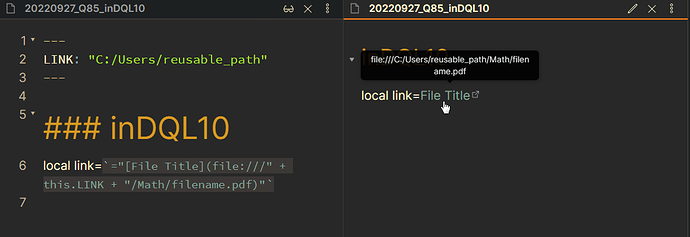Topic
Summary
- How to concatenate the value of a field to a local link path under windows operating system?
Test
Summary
Input
Summary
the current note
- filename :
20220927_Q85_inDQL10
---
LINK: "C:/Users/reusable_path"
---
### inDQL10
dictionary files
- filename :
filename.pdf
- Location: “file:///C:/Users/reusable_path/Math/filename.pdf”
inDQL10_concatenate_a_field_to_a_local_link_path
Summary
inDQL10_concatenate_a_field_to_a_local_link_path
Summary_code
---
LINK: "C:/Users/reusable_path"
---
### inDQL10
local link=`="[File Title](file:///" + regexreplace(this.LINK, "\s", "%20") + regexreplace("/Math/filename.pdf", "\s", "%20") + ")"`
Screenshots(inDQL10)
Part 1/2
Part 2/2

